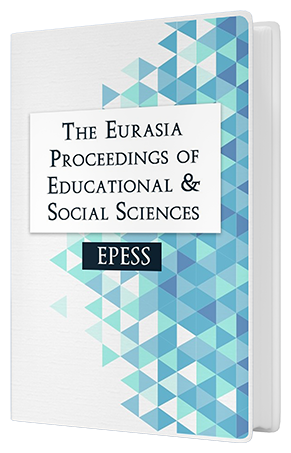Effects of Formative Assessment in Inquiry-Based Learning on High School Students’ Attitudes towards Physics
Keywords:
Inquiry-based instruction, Formative assessment, Physics education, AttitudeAbstract
This research study aimed to investigate the effect of formative assessment used in inquiry-based instruction on 10th grade students’ attitudes towards physics. For the study, a quasi-experimental with matching only pretest-posttest control group research design was adopted. An answer was searched for the question “Is there a significant difference between the experimental group students who are exposed to formative assessment in inquiry-based instruction and the control group students who are not exposed to formative assessment in inquiry-based learning in terms of their attitudes towards physics?”. The participants of the study consisted of 41 students in the 10th grade of a public high school in the spring semester of 2017-2018 academic years. In this study, “Physics-Related Attitudes Scale” was used as quantitative data collection tool. These were applied twice as pre-test and after a five- week treatment period as a post-test to both groups to assess and compare the effectiveness of formative assessment utilized in physics. Quantitative data collection tools were found to having of high reliability. The effect size of the applications (Cohen’s d) were large according to the calculations. When the data were analyzed, a significant difference was found between the experimental group and the control group in favor of the experimental group in the final test of Physics-Related Attitudes Scale. The statistical results of the study show that formative assessment in inquiry-based instruction has a positive effect on students' attitudes towards physics course.Downloads
Published
Issue
Section
License
Copyright (c) 2019 The Eurasia Proceedings of Educational and Social Sciences

This work is licensed under a Creative Commons Attribution-NonCommercial-ShareAlike 4.0 International License.
The articles may be used for research, teaching, and private study purposes. Any substantial or systematic reproduction, redistribution, reselling, loan, sub-licensing, systematic supply, or distribution in any form to anyone is expressly forbidden. Authors alone are responsible for the contents of their articles. The journal owns the copyright of the articles. The publisher shall not be liable for any loss, actions, claims, proceedings, demand, or costs or damages whatsoever or howsoever caused arising directly or indirectly in connection with or arising out of the use of the research material. All authors are requested to disclose any actual or potential conflict of interest including any financial, personal or other relationships with other people or organizations regarding the submitted work.




